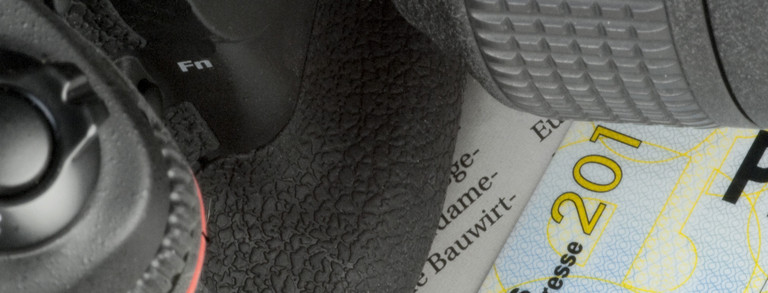Interdisciplinary Project Researches Kiosk Culture and Social Integration
- Top News
- Research
- Press Releases

Kiosk culture is considered an essential part of the Ruhr region - for this reason, it has even been an intangible cultural heritage of the state of North Rhine-Westphalia since 2020. The small shops not only offer a low-threshold opportunity for self-employment for migrants but also often serve as a place of arrival for newcomers, where they can find products and languages from their home countries. However, from a scientific perspective, kiosks often receive little attention - the “Stall Inclusive” project aims to change that: A team led by Dr. Alexander Röhm from the Department of Rehabilitation Sciences has been investigating since April what conditions kiosk culture needs and to what extent it contributes to integration. “We are exploring the potential of kiosks as places of arrival and encounter,” says Röhm. “To do this, we conduct interviews about the daily work in the kiosk and the life situation of the owners. Above all, we want to find out under what conditions kiosks become integrative meeting places for immigrants. For example, we look at what written language or which national flags are visible from the outside of the kiosk, whether the assortment includes goods from abroad that supermarkets do not offer, and whether there is a regular clientele.”
Many challenges for kiosk operators
Various challenges threaten the existence of kiosks and thus their potential as a place of arrival: Rising operating costs due to electricity and rent, competition from extended opening hours of supermarkets, and a lower demand for tobacco products and newspapers are just a few factors that are currently putting increasing pressure on kiosk owners. Therefore, the project should also help to network owners so that they can exchange information about difficulties and not only preserve but also strengthen the kiosk as a social place of integration. Cooperation with municipal actors such as the public order office or the city administration is also planned.
In addition to Dr. Alexander Röhm, Dr. Jonas Carvalho e Silva and Dr. Yi-Jhen Wu from TU Dortmund University as well as Dr. Paul Eisewicht from the University of Münster are among the initiators. The researchers continue to cooperate with the Institute for Regional and Urban Development Research Dortmund, the Planerladen gGmbH, and the 1. Kioskclub 06 e.V. Dortmund. The project emerged from the working group “Global Interconnections in the Ruhr Region” of the Global Young Faculty, which was funded by the Mercator Research Center Ruhr and the Stiftung Mercator from 2021 to 2023. “Stall Inclusive” receives financial support for two years in the amount of 20,000 euros from the Alfried Krupp von Bohlen und Halbach Foundation. As part of the program “150 Projekte für das Ruhrgebiet” (150 Projects for the Ruhr Region), the foundation supports initiatives that are committed to the region and its residents.
More information about “Stall Inclusive: Integration of Migrants through Small Business Activities in the Ruhr Region” can be found here.
Contact for queries:





![[Translate to English:] Partner Four hands are holding the green logo of TU Dortmund University](/storages/tu_website/_processed_/1/d/csm_Partner_Nicole_Rechmann_KW_670eba0154.jpg)




![[Translate to English:] Forschung An apparatus with tubes in a laboratory](/storages/tu_website/_processed_/0/c/csm_Forschung_Juergen_Huhn_4fa3153b51.jpg)
![[Translate to English:] Studium Five students are sitting in a lecture hall. They are talking to each other.](/storages/tu_website/_processed_/c/9/csm_Studium_FelixSchmale_dbdbfb0dd7.jpg)





